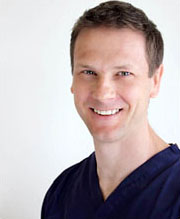Oral health depends on several factors, one of the most important being maintaining a balanced environment inside the mouth. Scientists are only finding out about the importance of the oral microbiome, which includes both beneficial and harmful bacteria that live in the oral cavity.
When the microbiome is thrown off balance, certain oral diseases can appear. In this article, we look at oral thrush, one of the most common conditions linked to an imbalanced oral microbiome.
What’s oral thrush?
This condition is also called candidiasis or mouth thrush. Thrush appears due to an imbalance in a specific oral bacteria known as Candida albicans. Under healthy conditions, Candida exists naturally in the mouth and other parts of the digestive system and is kept in checks thanks to the immune system.
However, in some cases the immune system can’t cope with Candida growth, which leads to an imbalance and to bacterial overgrowth.
What are the symptoms of oral thrush in adults?
The most obvious symptom of candidiasis is a white coating that appears in the soft tissues of the mouth. Candida overgrowth can develop on the tongue, on the roof of the mouth, inside the cheeks, along the gums, or in the back of the throat.
This white coating is actually a Candida infection, and as it happens with other infections, it may cause some pain or discomfort. In this case, people with mouth may feel some burning or pain when swallowing or when eating and drinking.
Along with the white lesions, there might be some redness in the affected area, which is also a sign of infection.
Other common symptoms of an oral Candida infection include:
- A bad taste in the mouth, although in some cases people lose their sense of taste. Food may also taste different while the infection is active.
- Cracks in the corners of the mouth, which may be slightly painful.
- The lesions may bleed if they’re accidentally scratched or rubbed.
- If you wear dentures, you may notice your gums become swollen or sensitive under the dentures.
What causes oral thrush?
Candidiasis appears when the immune system isn’t able to maintain the balance between harmful and harmless bacteria in the mouth. This fact already tells us that some people are more at risk of developing this condition than others.
In adults, vulnerable groups include those with a weak immune system, such as people diagnosed with cancer or HIV, or those who have just gone through major surgery, like an organ transplant.
This condition can also appear in:
- People who wear dentures, as studies have shown the risk can be up to 60% higher than in the normal population. While the dentures themselves will not cause candidiasis, the infection can appear if they don’t fit well or if they’re not cleaned properly.
- People affected by dry mouth, which encourages the growth of harmful bacteria.
- Those with pre-existing health conditions that are out of control or poorly managed, such as diabetes.
- People who are taking medicines that disrupt the healthy balance of bacteria, such as antibiotics, asthma inhalers, or prescription anti-inflammatories.
- Smoking.
- Poor oral hygiene.
Treatment options
Although mouth thrush is uncomfortable and even painful, this condition is not contagious. However, candidiasis will not go away on its own, so it needs to be treated.
Getting prompt treatment is particularly important for people who have a weak or compromised immune system, as the infection could spread and become difficult to fight.
Since candidiasis is a fungal infection, treatment usually involves taking anti-fungal medicine. In some cases, you will be given a gel or liquid anti-fungal which is applied directly to the affected area. Sometimes, it may be necessary to take tablets or capsules.
After starting treatment, the infection should clear within 7 to 14 days.
If you find that you get Candida infections often, you’ll want to take some preventative measures, such as:
- Don’t get into the habit of going to bed with your dentures on. Always remove them at night and clean them every day with the right products.
- Denture wearers should use a soft toothbrush to gently clean their gums and tongue after removing the dentures.
- Brush your teeth after every meal, if possible with a fluoride-based toothpaste.
- Don’t neglect flossing.
- Reduce your consumption of sugary foods and drinks.
- If you need an inhaler to control your asthma, rinse your mouth after using it.
- Follow treatment for any health conditions that affect blood sugar levels, like diabetes.
You don’t need to see a dentist to get treated for oral thrush, but after an infection, it’s recommended to have a check up to make sure everything is under control.
Sources:
https://www.mayoclinic.org/diseases-conditions/oral-thrush/symptoms-causes/syc-20353533
https://www.healthline.com/health/thrush
 Matthew Houlton BDS(Sheffield) MFGDP(UK)
Matthew Houlton BDS(Sheffield) MFGDP(UK)I’m Matthew Houlton, principal dentist and practice owner of Manor House Dental Practice.
Qualified from Sheffield dental hospital in 1993.
Post graduate training with Paul Tipton (Specialist Prosthodontist) from 2005-2007.
Diploma for Membership of the Faculty of General Dental Practice (UK) 2007.
Special interest in Orthodontics.
Yorkshire Deanary Fixed Appliance Training Scheme 2002-2004.
I have worked at York Hospital’s orthodontic department one session a week since 2009.
Member of the British Society of Occlusal Studies (the study of temporomandibular disorder).
I have two children, who keep me busy when I am not at the practice. I take a keen interest in and teach Aikido, a martial art, to keep a healthy mind and body.

